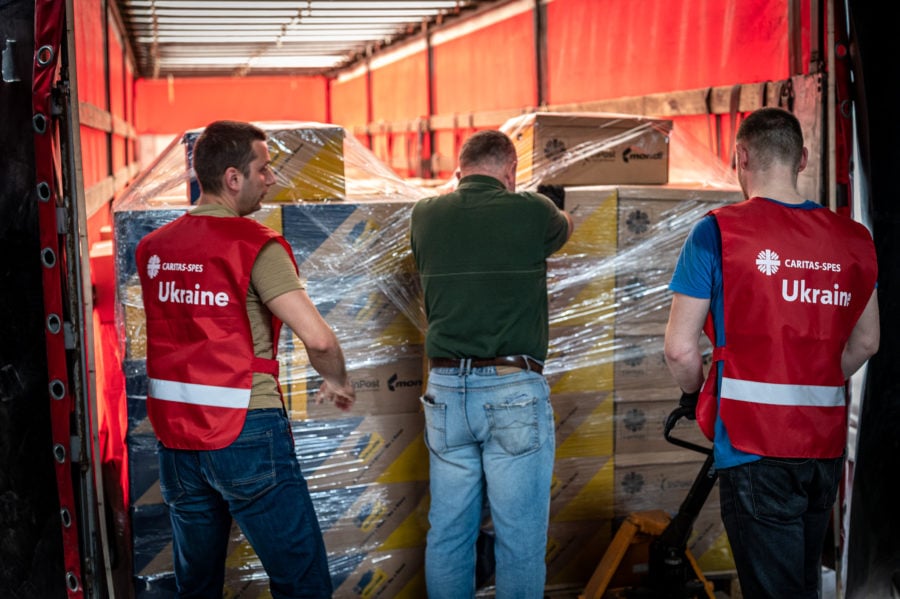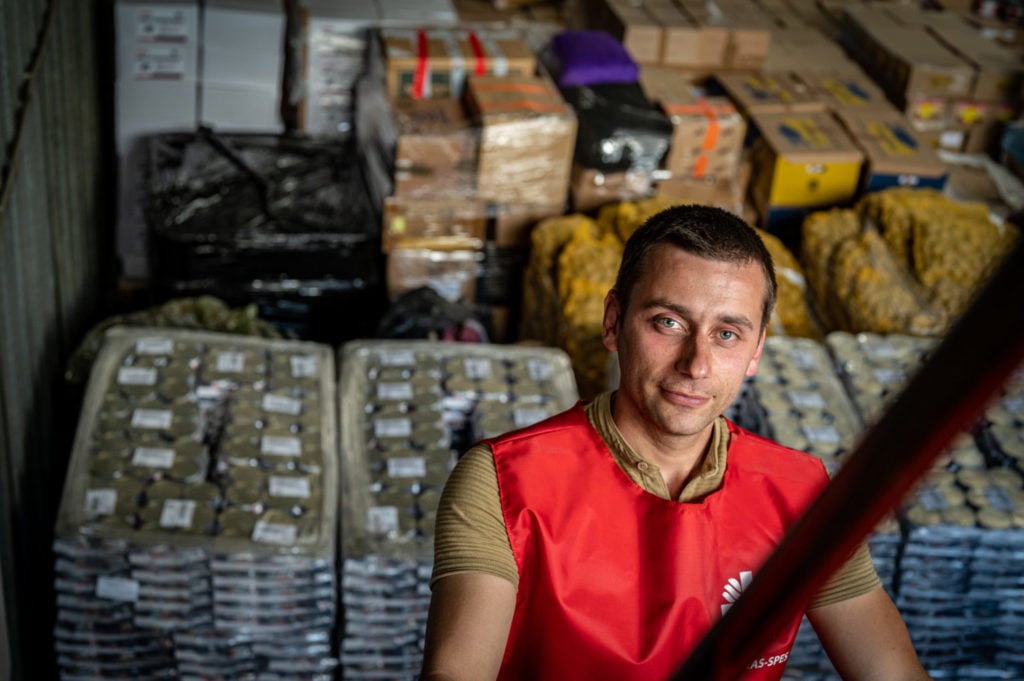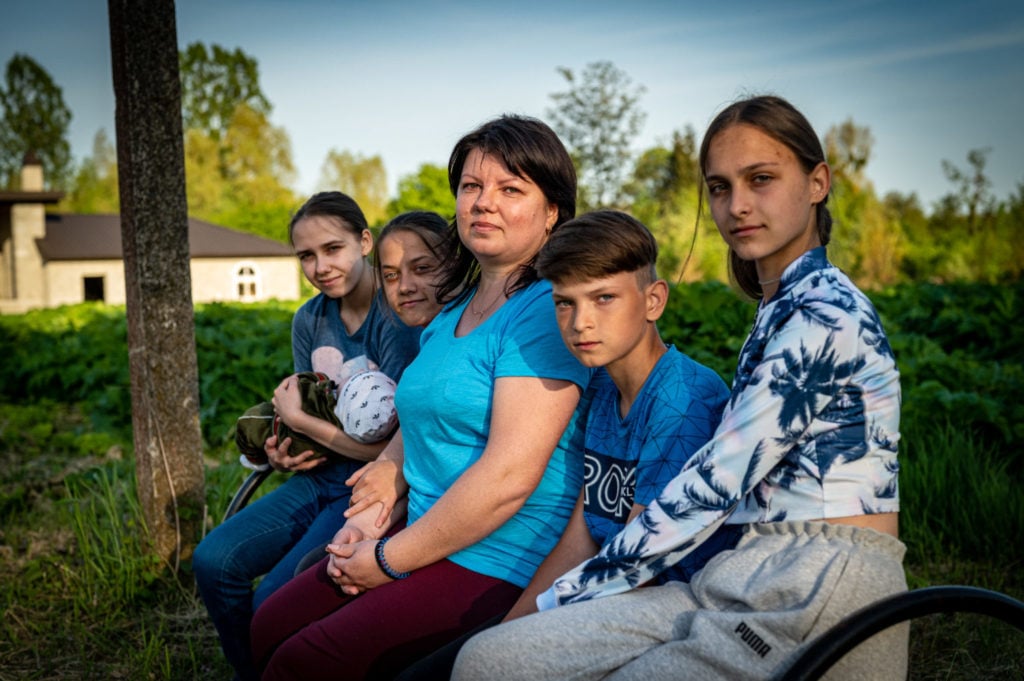Large parts of Ukraine have been in a state of war since 2014. Since February 2022, the lives of all Ukrainians have been severely affected by violence, shortages of goods and food and a major displacement crisis. In Ukraine, Cordaid funds partner organisations through Caritas Internationalis, the global network of Catholic humanitarian organisations.

There are two national Caritas organisations in Ukraine: Caritas Spes, which originated from the country’s Roman Catholic constituency and Caritas Ukraine, which stems from the Greek Catholic church.
Staff and volunteers of both organisations work day and night to support people who have fled their homes with sometimes nothing more than the clothes they had on.
Humanitarian hub
Since the start of the war, the western part of the country, especially the city of Lviv, has become a humanitarian hub after the situation in the east deteriorated. At a storage facility of Caritas Spes in the Lviv region, multiple trucks arrive daily, full of essential goods donated by neighbouring countries.
After the goods have arrived, the aid workers load up their trucks and start driving to the cities in the east that have been suffering continuous air raids and bombings and where, in some cases, people are still living in the rubble.
‘I have been to Irpin myself, the devastated town close to Kyiv, to deliver goods,’ says Markian Stefanyshyn, humanitarian coordinator for Caritas Spes and chief logistics of the storage facility. ‘People started crying when we got there. It was very touching.’
Practical issues
According to Markian, the continuous aid operation has various practical issues. ‘Our biggest challenge is space. We don’t have enough. We can only try to unload and load faster so the trucks can leave sooner and create space for the next one coming in. We need to be extremely efficient.’

The Caritas members not only distribute food, water, clothes, and medicines but also provide a home for thousands of displaced people or guide them to the border if they are looking for safety outside the country.
More than a project
80 kilometres outside of Lviv, Caritas Spes has built so-called family-run orphanages, providing a safe space for children to live, learn and grow with the support and warmth of a real family.
‘We don’t like to call this a project because a project has a beginning and an end,’ says Tetiana Kalinichenko from Caritas Spes. ‘This is a way of life. The kids here will not be on their own when they turn 18. They will always be a part of this family. Helping children this way means true dedication.’
‘From the moment we stepped out of the train, we felt amazing support from the people in western Ukraine.’
Caritas Spes has built five houses for five families, each with ten people. Some families have been living here for years, while others arrived recently after the violence in other parts of the country forced them to leave their homes.
This is the case for Natalia Molar, who came from a village near Kyiv with two of her children. She now takes care of eight other displaced children as well.
Natalia: ‘We wanted to stay in our home as long as possible, but when the missiles started flying over our heads and a neighbouring village was occupied by the Russian military, we knew we had to leave. From the moment we stepped out of the train, we felt amazing support from the people in western Ukraine. People are doing everything they can. The children now go to school. They received books, and the teachers were great. They are doing well, and their grades are good.’

1200 meals a day
In cities throughout the country, Caritas Ukraine has set up tents where the volunteers hand out essential goods. They have also organised food kitchens where displaced people can get a warm meal. For example, in Ivano-Frankyvsk, Caritas Ukraine provides meals for 1200 people each day.
‘Even when this war is over, we will be needing a lot of extra hands.’
Millions of Ukrainians depend on the immense aid operation coordinated by local and international NGOs. Despite all the good work and satisfying results, it is unlikely that humanitarian needs will decline in the coming months. Markian Stefanyshyn is worried about what a protracted crisis will mean for aid in the long term.
‘For instance, the number of goods coming in from Poland is dropping’, Markian says. ‘The volunteers are becoming very tired, and some are losing motivation. People are also worried about their income, understandably. Even when this war is over, we will need a lot of extra hands. The needs will still be there. The most important thing now is ending this war. Not only for Ukraine but for the entire world.’